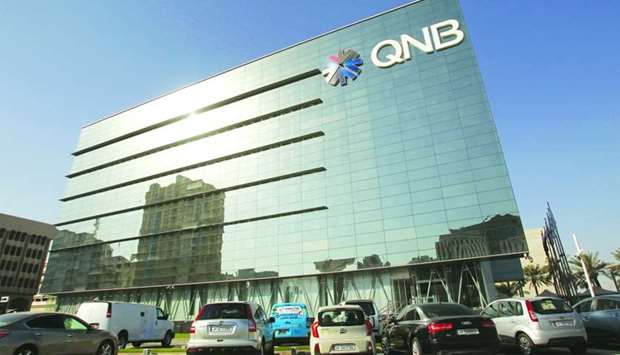QNB, the largest financial institution in the Middle East and Africa (MEA) region, has reported a 4% year-on-year increase in net profit to QR14.4bn for the year ended 2019 and suggested 60% cash dividend.
The financial results for 2019 along with the profit distribution are subject to the Qatar Central Bank (QCB) approval.
Total assets grew 10% to QR945bn at the end of December 31, 2019, one of the best set of results in the QNB's history, a bank spokesman said.
Solid growth in loans and advances by 10% to QR679bn contributed to the growth in total assets, he said, adding this was mainly funded by strong customer deposits generation which expanded 10% to QR684bn.
Thus, the bank achieved a healthy loans-to-deposits ratio of 99.2% at the end of December 31, 2019.
The lender's operational efficiency (cost-to-income) ratio stood at 25.9%, in addition to achieving sustainable revenue generating sources, which is considered one of the best ratios among large financial institutions in the region.
The ratio of non-performing loans to gross loans was 1.9% as on December 31, 2019, one of the lowest amongst financial institutions in the MEA region, reflecting the high quality of the group’s loan book and the effective management of credit risk.
The group’s conservative policy in regard to provisioning resulted in the coverage ratio at 100% during the review period.
Total equity increased by 7% to QR95bn and earnings-per-share stood at QR1.45. The group's capital adequacy ratio, at the end of 2019, was 18.9%, higher than the regulatory minimum requirements of the QCB and the Basel Committee.
QNB Group serves a customer base of approximately 25mn supported by 29,000 staff resources operating from more than 1,100 locations along with 4,300 ATMs.
During the year, MSCI, a global index compiler, had found QNB considerably improved its ESG (environment social and governance) ratings in a short span to occupy the top slot among the global peers.
MSCI started covering the bank in October 2015 with 'BB' rating and in 2016 and 2017, it became 'BBB' and in August 2019, it was upgraded to 'A' rating due to ‘strong position for meeting digital banking challenges’.

